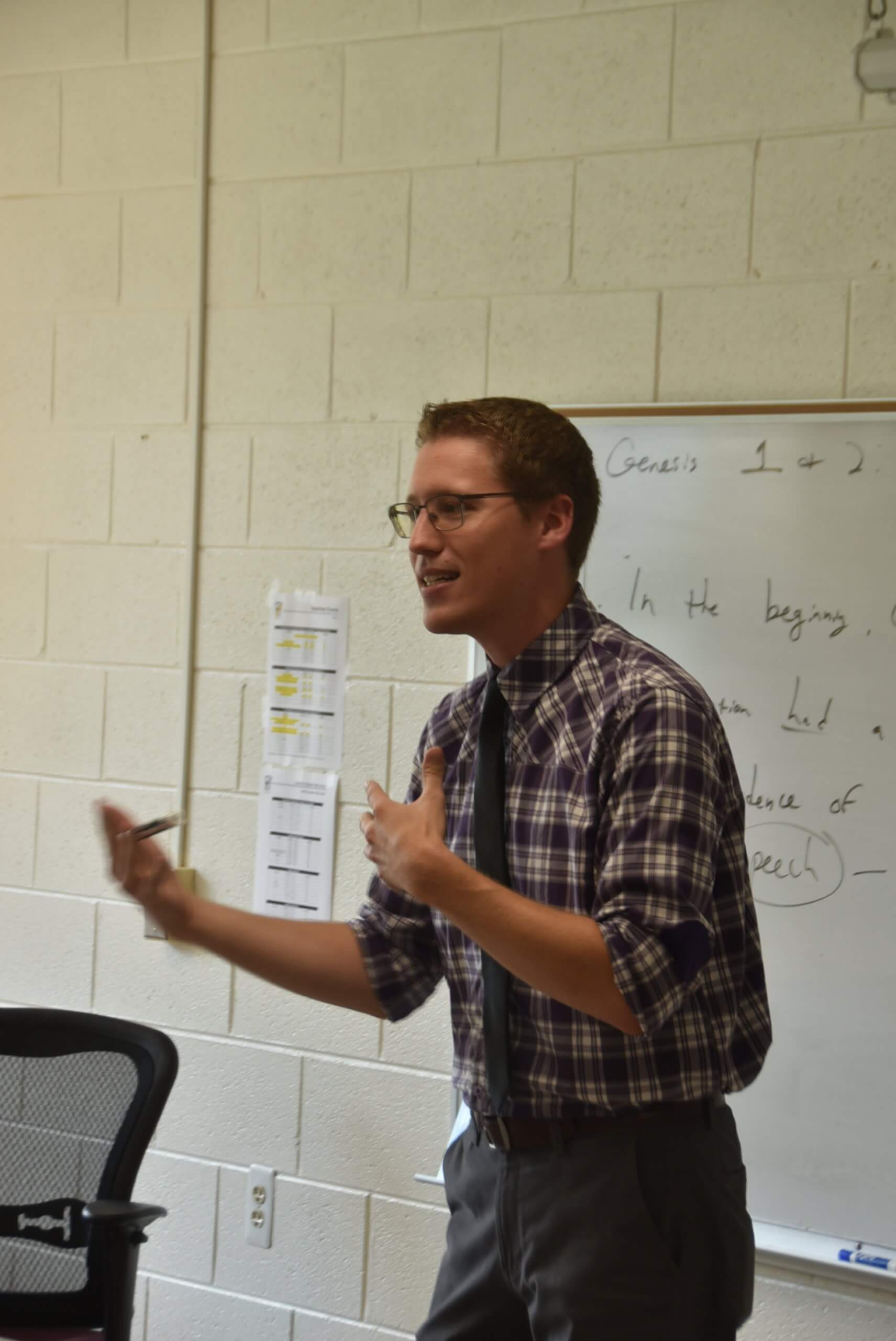Mr. Hale, teacher of theology, philosophy, and history at Everest Collegiate, was invited to give an introductory lecture on metaphysics to students at Saint John Fisher College in Rochester, New York. The lecture was a part of Dr. Fernando Ontiveros’s Philosophy of Science course and was delivered remotely over Zoom. Ontiveros is a Doctor of Biology specializing in microbiology and cellular immunology, and has a strong interest in the intersection of science, philosophy, and theology.
While philosophy and metaphysics can sound like niche disciplines, a key part of Mr. Hale’s talk turned on the idea that everyone is a metaphysician whether they realize it or not. As the “science of being qua being,” metaphysics explores questions surrounding reality itself. What can be said, if anything, about everything that is real? Why is there something, rather than nothing? Does the world have a purpose, or is it random? Is the universe good, with all its beauty and majesty, or do the scales tip towards evil, suffering, and meaninglessness?
Questions such as these may be some of the most difficult, but they are also the most interesting, Mr. Hale pointed out. They are also shared by all people, from the simplest child to the college professor. Students at Everest have the opportunity to take Mr. Hale’s Introductory to Philosophy course, which offers a sizeable foray into metaphysics. Specifically, Everest students learn Thomism through Mr. Hale’s class, which is the name for the metaphysics of St. Thomas Aquinas.
Inspired by his own philosophy teachers at Boston College, including Dr. Peter Kreeft, Mr. Hale aspires to bring good philosophy to students everywhere. Mr. Hale believes that, while metaphysics can seem intimidating or overly-specialized at first glance, it is truly the most inviting of all disciplines. When anyone trusts in reason, formulates beliefs about the how the world is, marvels at its beauty, or laments its pains, that person is doing metaphysics. “We can not avoid doing metaphysics,” Hale explained, “but we can avoid doing it well, if we’re not careful. That’s the task of good philosophy.”



